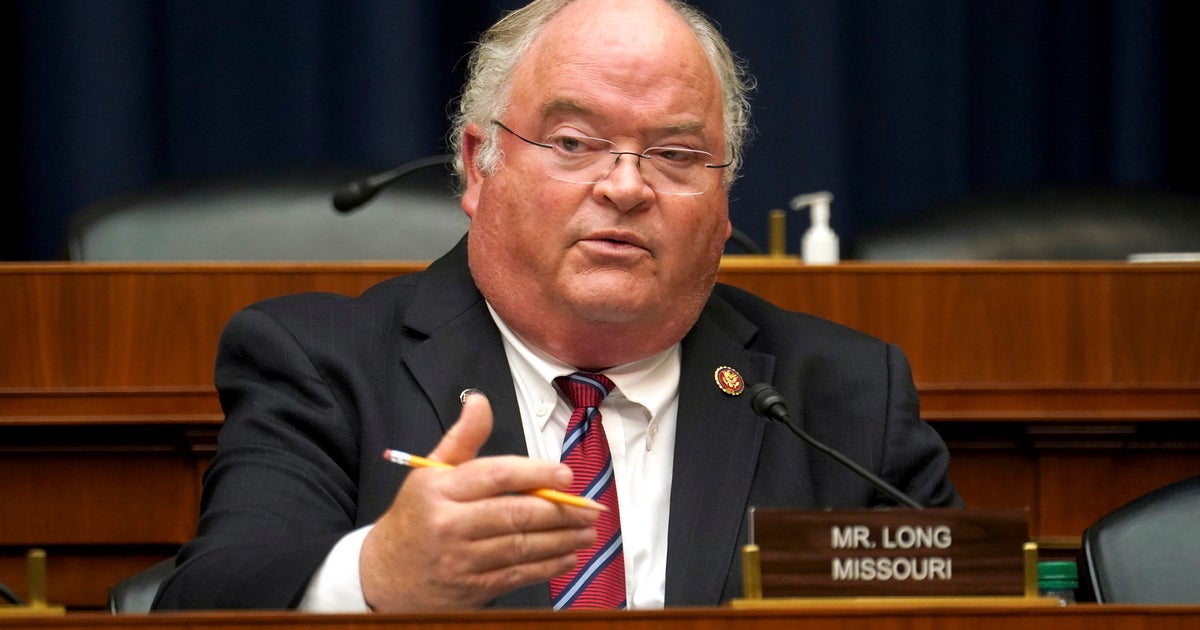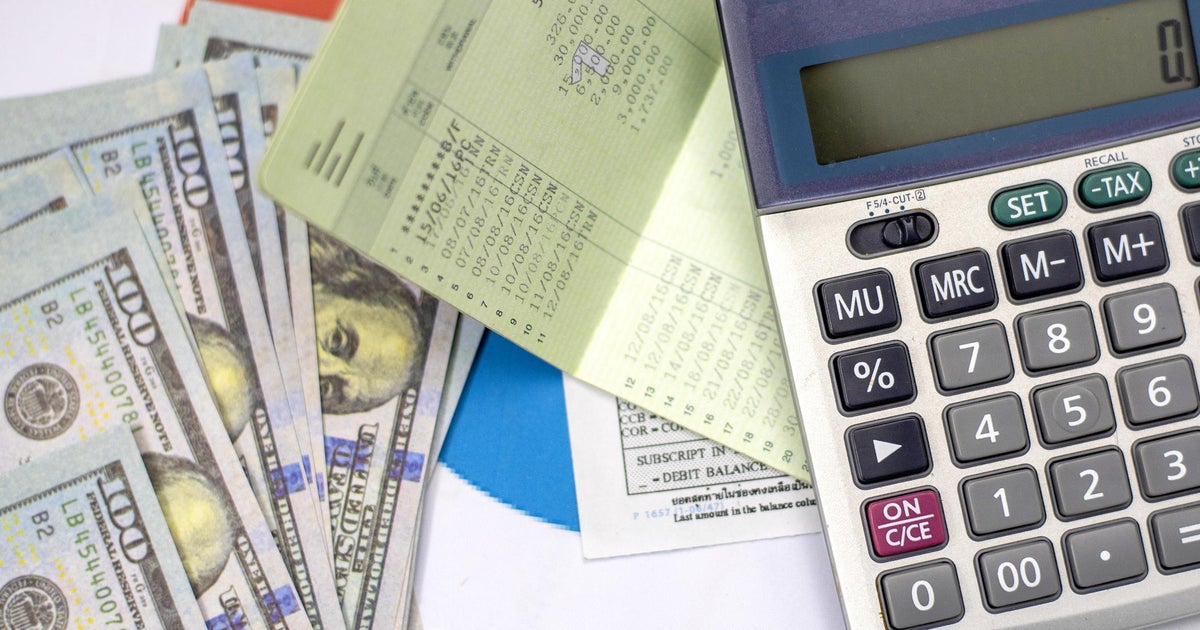CBS News
IRS is creating unconscionable delays for a major issue, watchdog says. Here’s what to know.

The IRS is far too slow in resolving a major problem for taxpayers, who must wait almost two years for the tax agency to clear up identity theft cases, according to a new report from the National Taxpayer Advocate, an independent watchdog that’s part of the IRS.
In April 2024, the IRS took more than 22 months to resolve identity theft victims’ assistance cases, up from 19 months earlier this year, the report said.
The IRS had about 500,000 unresolved cases of identity theft as of April, the NTA added. These occur when fraudsters file a tax return using a taxpayer’s Social Security number with the goal of claiming their tax refund — an issue that is typically discovered when the actual taxpayer files their own return. In these cases, the IRS freezes the second return so it can figure out which taxpayer is the legitimate one.
The nearly two-year wait to resolve identity theft cases comes even as the IRS has been bolstered by billions in funding from the Inflation Reduction Act that President Joe Biden signed into law in August 2022. Overall, this year’s tax season went much smoother than prior years, but Erin M. Collins, who leads the organization assigned to protect taxpayers’ rights under the Taxpayer Bill of Rights, called out the delays to help victims of identity theft.
“IRS delays in resolving identity theft victim assistance cases are unconscionable,” Collins said.
And further harm could befall identity theft victims, who are often dealing with other related issues. For instance, tax refunds can be delayed, contributing to financial insecurity, especially as two-thirds of identity theft victims are low-income and rely on their refunds to pay for their basic living expenses.
“These delays are particularly challenging for low-income taxpayers who may rely on these refunds to pay their day-to-day living expenses or expenses accrued throughout the year, such as medical bills. In addition, these identity theft victims may struggle to secure certain kinds of loans, such as mortgages,” the report said.
In an emailed response to CBS MoneyWatch, the IRS said it “recognizes that the backlog of identity theft cases remains one of the most significant ongoing service gaps,” and added it appreciates the NTA calling attention to the issue.
“It’s important to note that the IRS is actively working to implement a range of improvements to provide faster service to victims of identity theft, including identifying, training and moving additional resources to work these important cases,” the agency said. “Other actions planned are to review our processes and identify new practices that will improve the process.”
The IRS noted that it has tripled its closure rate of identity theft cases since 2020, and that increased funding from the IRA will help improve its ability to resolve these issues.
2024 tax filing season
The report details the federal tax collector’s performance in modernizing its technologies, the speed with which it answers its phones and the rate it sends out refund checks, among other things.
Overall, the 2024 filing season went far more smoothly than recent years, especially compared with the “abysmal” service that taxpayers experienced during the pandemic, the NTA said.
“Not to be overly dramatic, but during the last four years, I believe we have progressed from a place of despair to a place of hope and optimism for the future of the agency and therefore for taxpayers,” Collins said.
The IRS originally received an $80 billion infusion under the Inflation Reduction Act, but that money is vulnerable to potential cutbacks.
Last year’s debt ceiling and budget cuts deal between Republicans and the White House resulted in $1.4 billion rescinded from the agency and a separate agreement to take $20 billion from the IRS over the next two years and divert those funds to other nondefense programs.
Additional money for the IRS has been politically controversial since 2013, during the Obama administration, when the agency was found to have scrutinized political groups that applied for tax-exempt status. A report by the Treasury Department’s internal watchdog found that both conservative and liberal groups were chosen for close review.
“I believe the IRS has turned the corner, and with the additional multiyear funding provided by the Inflation Reduction Act, particularly for Taxpayer Services and information technology modernization,” Collins said. “I am bullish that the taxpayer experience will continue to improve and move onward and upward.”
—With reporting by the Associated Press.
CBS News
IRS sending payments of up to $1,400 to 1 million people. Here’s who qualifies.

The IRS said Friday it is sending a total of $2.4 billion in “special payments” to 1 million people, part of an effort to ensure that Americans who didn’t receive all of their federal stimulus checks during the pandemic will get the money in their bank accounts.
The payments will vary by person, with a maximum amount of $1,400 per recipient, the agency said in a statement.
“To minimize headaches and get this money to eligible taxpayers, we’re making these payments automatic, meaning these people will not be required to go through the extensive process of filing an amended return to receive it,” IRS Commissioner Danny Werfel said in a statement.
Who will get a payment from the IRS?
The tax agency said it’s disbursing the funds after reviewing internal data that showed many people had filed tax returns but yet didn’t claim what is known as the “recovery rebate credit” in 2021.
That credit was designed for people who didn’t get all or some of the stimulus checks when they were issued during the pandemic. Lawmakers authorized three stimulus payments, with two sent in 2020 and a third in 2021.
Most taxpayers who were eligible for the stimulus payments have already received them directly, or later through the recovery rebate credit.
Do you need to apply for the IRS payment?
No. The IRS said it’s sending the payments automatically to about 1 million people who filed tax returns and who qualified for the recovery rebate credit yet didn’t claim it. The agency will send a letter to recipients to let them know they will receive the payment.
When will the IRS send the payments?
The tax agency said the checks will be sent in December, with most of the payments arriving by late January 2025.
The money will either be automatically direct deposited to the recipient’s bank account or will arrive in the mail via a paper check.
CBS News
Joy to the World | Sunday on 60 Minutes

Watch CBS News
Be the first to know
Get browser notifications for breaking news, live events, and exclusive reporting.
CBS News
Enter for a chance to win tickets to the Chicago Boat Show
Don’t miss one of the most amazing shows in the U.S. — Discover Boating’s Chicago Boat Show in partnership with Progressive Insurance. Enter now to win a 4-ticket-prize-pack to the event.
Read the original article







